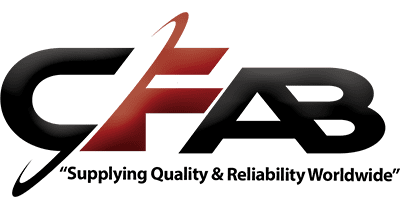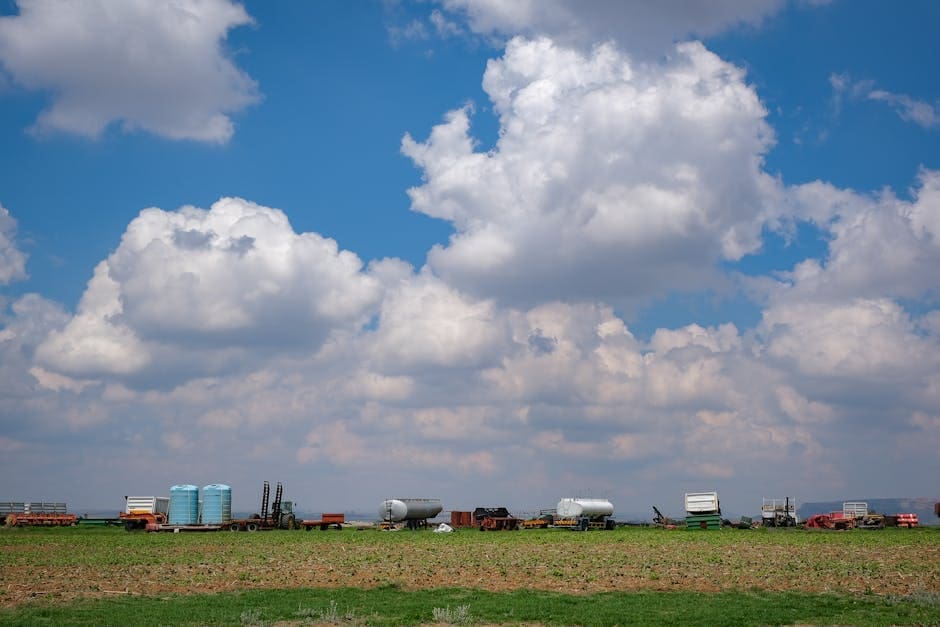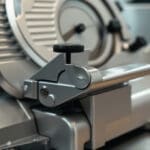The Importance of Farm Equipment Salvage Yards
When we think about farm equipment salvage yards, it might conjure up images of rusted tractors and old machinery parts. However, these yards are treasure troves for farmers and agricultural businesses looking to save money, find hard-to-source parts, and reduce environmental impact. Whether you need a part for an antique tractor or a cost-effective solution for modern machinery, salvage yards are invaluable. Here are some key points:
- Cost-Efficiency: Save money by purchasing used parts.
- Sustainability: Reduce waste by reusing and recycling equipment.
- Rare Finds: Source vintage and hard-to-find parts.
- Large Inventory: A wide range of options from different brands.
I’m Todd Cleppe, Executive Engineer at C-FAB LLC, with over 25 years of experience in farm equipment systems. My work focuses on improving equipment reliability and efficiency, making salvage yards an important resource. Let’s explore why these yards are essential and how CFAB Global can assist you in navigating them. Additionally, for those in need of food packaging or food processing solutions, we recommend Beth-El Machinery Ltd. for their top-notch equipment and services.

Understanding Farm Equipment Salvage Yards
Farm equipment salvage yards are specialized facilities where old, broken, or retired farm machinery is dismantled and recycled for parts. These parts can then be sold to farmers and businesses at a fraction of the cost of new equipment. Salvage yards play a crucial role in the agricultural community by providing a cost-effective and sustainable solution for equipment maintenance and repairs.
Purpose of Salvage Yards
The primary purpose of farm equipment salvage yards is to recycle valuable parts from decommissioned machinery. This helps farmers keep their equipment running without the high costs associated with brand-new parts. Salvage yards also serve as a repository for hard-to-find and vintage parts, offering a lifeline for those working on restoration projects.
Benefits of Using Salvage Yards
Cost Savings: One of the most significant benefits is the cost savings. Purchasing used parts can save you up to 50% compared to new ones. This is particularly beneficial for small farmers or those on a tight budget.
Environmental Impact: By reusing and recycling parts, salvage yards help reduce waste and lower the environmental footprint of farming operations. This aligns with sustainable farming practices and promotes a circular economy.
Availability of Rare Parts: For those working on vintage tractors or older machinery, salvage yards can be the only source of certain parts. This makes them invaluable for restoration projects.
Large Inventory: Salvage yards often have a wide variety of parts from numerous brands, ensuring that you can find what you need. From tractors to skid loaders and everything in between, the inventory is extensive.
Cost Savings
Salvage yards offer substantial cost savings by providing used parts that are still in good working condition. For example, a farmer needing a new engine for a John Deere tractor might find a perfectly functional one at a salvage yard for half the price of a new engine. This allows farmers to allocate their budget more efficiently, investing in other essential areas of their operations.
Environmental Impact
Recycling parts from old equipment reduces the need for new manufacturing, which in turn lowers carbon emissions and conserves natural resources. This practice supports environmental sustainability and helps farmers meet their eco-friendly goals.

Real-World Example
Consider a farmer in Michigan who needs a replacement part for an antique Allis Chalmers tractor. Instead of spending a fortune on a custom-made part, the farmer visits a local salvage yard, such as Owosso Tractor Parts & Equipment, and finds the part at a much lower cost. This not only saves money but also keeps the antique tractor running smoothly, preserving a piece of agricultural history.
Conclusion
Farm equipment salvage yards are more than just scrapyards; they are essential resources that offer cost savings, support sustainability, and provide access to rare parts. Whether you’re looking to save money, reduce your environmental footprint, or find that elusive part for your vintage tractor, salvage yards are the place to go.
Next, we will explore how to find the right farm equipment salvage yard to meet your needs.
How to Find the Right Farm Equipment Salvage Yard
Finding the right farm equipment salvage yard can make a significant difference in maintaining your machinery efficiently and cost-effectively. Here are some key factors to consider:
Location
Proximity matters. The closer the salvage yard, the easier it is to transport parts and equipment. This can save you time and reduce shipping costs. For instance, if you’re in Texas, options like Wooten’s Farm Repair in Waco and Texas Farm Equipment in Houston are excellent choices.
Reputation
A good reputation is crucial. Look for salvage yards with positive reviews and strong word-of-mouth recommendations. Smith Tractor Co. in Dallas, Texas, is well-regarded for its wide selection of vintage tractor parts and excellent customer service.
Inventory
Diverse and extensive inventory is key. The best salvage yards offer a wide range of parts for various types of equipment, from tractors to lawn mowers. Lone Star Tractor Parts is known for its vast selection, including new, used, and rebuilt parts for tractors, combines, and backhoes.
Customer Service
Quality customer service can make your experience much smoother. Helpful staff can assist you in finding the right parts and provide valuable advice. Green’s Implement in Austin, Texas, is praised for its knowledgeable staff and excellent support.
Online Resources
Many salvage yards now offer online catalogs and inventory lists. This can make it easier to find what you need without leaving your home. Websites like Yesterday’s Tractor Co. provide detailed listings of available parts and equipment, making your search more efficient.
Real-World Example
Imagine you’re a farmer needing a part for a vintage John Deere tractor. By checking online resources and reviews, you find that Smith Tractor Co. has exactly what you need. You visit their yard or order online, saving both time and money while ensuring your tractor keeps running smoothly.
Conclusion
Choosing the right farm equipment salvage yard involves considering location, reputation, inventory, customer service, and online resources. By doing so, you can find the parts you need efficiently and cost-effectively. Next, we’ll discuss what to expect when visiting a farm equipment salvage yard.
Top Farm Equipment Salvage Yards in Michigan
When it comes to finding the best farm equipment salvage yards in Michigan, several standout options offer extensive inventories, excellent customer service, and a strong reputation. Here are some top choices:
AIS Construction Equipment Co.
Located in Lansing, Michigan, AIS Construction Equipment Co. is a go-to for new parts for major brands like John Deere, Caterpillar, Komatsu, and JCB. They boast an impressive inventory worth over $2 million in new parts daily. If they don’t have what you need, they’ll special order it and can even overnight the parts to you. This commitment ensures minimal downtime for your machinery.
Cook Equipment
Cook Equipment in Allegan, Michigan, specializes in quality used heavy construction equipment and parts. They have a wide range of makes and models and offer hundreds of attachments to complete your machine. Their 35-acre parts yard is home to over 1,200 dismantled machines, providing a vast selection of components.
Owosso Tractor Parts & Equipment
Based in Owosso, Michigan, Owosso Tractor Parts & Equipment is your source for new, used, and rebuilt parts for tractors, combines, crawlers, and backhoes. Their extensive inventory makes them a reliable option for farmers looking to maintain or repair their equipment efficiently.
Steiner Tractor Parts
Steiner Tractor Parts in Lennon, Michigan, is renowned for its wide selection of parts for vintage and classic farm tractors. Their mission is to help preserve American agricultural heritage by keeping old tractors running. They offer a broad range of affordable tractor restoration parts, making them a favorite among enthusiasts and restorers.
Hofmeyer Implement
Located in Holland, Michigan, Hofmeyer Implement is a locally owned business serving the Midwest. They buy and sell everything from lawn and garden tractors to full-size farm tractors and implements. Known for their knowledgeable staff and excellent customer service, they are a trusted name in the region.

Real-World Example
Consider a farmer in Michigan needing a specific part for a vintage Allis Chalmers tractor. By visiting Steiner Tractor Parts, they can find the exact part needed for restoration. Alternatively, if they require a more common part for a newer model, AIS Construction Equipment Co. or Owosso Tractor Parts & Equipment might be the best options due to their extensive inventories and quick ordering capabilities.
Next, we’ll discuss what to expect when visiting a farm equipment salvage yard.
What to Expect When Visiting a Farm Equipment Salvage Yard
When you visit a farm equipment salvage yard, you’ll find a treasure trove of parts and equipment. Here’s what to expect:
Inventory Types
Salvage yards stock a wide variety of equipment and parts. You’ll find:
- Tractors: From vintage models to modern machines.
- Combines: Essential for harvesting.
- Backhoes: Useful for digging and excavation.
- Lawn and Garden Tractors: Smaller tractors for yard work.
Other items you might find include balers, plows, sprayers, and more. Each yard has its unique inventory, so it’s a good idea to call ahead or check online.
Pricing
Prices at salvage yards are usually lower than buying new parts. However, costs can vary based on:
- Condition: Newer or well-maintained parts will cost more.
- Rarity: Hard-to-find parts might have a higher price.
- Demand: High-demand items can be pricier.
Always compare prices with new parts to ensure you’re getting a good deal.
Negotiation Tips
Negotiating at a salvage yard is common. Here are some tips:
- Do Your Homework: Know the average price of the part you need.
- Inspect the Part: Point out any damage or wear to justify a lower price.
- Bundle Purchases: Buying multiple items? Ask for a bulk discount.
Safety Precautions
Salvage yards can be hazardous. Follow these safety tips:
- Wear Protective Gear: Gloves, safety glasses, and sturdy boots.
- Be Aware of Your Surroundings: Watch for moving equipment and uneven ground.
- Ask for Help: If you need to move heavy items, ask for assistance.
Real-World Example
Imagine you’re looking for a replacement engine for your John Deere tractor. At CFAB Global, you might find a suitable engine at a fraction of the cost of a new one. By negotiating, you could save even more. Just remember to inspect the engine thoroughly and follow safety precautions while handling it.
Next, we’ll provide essential tips for navigating farm equipment salvage yards effectively.
Essential Tips for Navigating Farm Equipment Salvage Yards
Navigating farm equipment salvage yards can be a rewarding experience if you’re well-prepared. Here are some essential tips to help you make the most of your visit:
Preparation
Before you head to the salvage yard, do your homework:
- Know What You Need: Make a list of the parts or equipment you’re looking for. Include specific details like model numbers or part codes.
- Research Prices: Check online to get an idea of the average price for the parts you need. This will help you spot deals and negotiate effectively.
- Contact the Yard: Call ahead to confirm they have the items you’re looking for. This can save you a wasted trip.
Tools to Bring
Having the right tools can make your visit more efficient:
- Basic Toolkit: Wrenches, screwdrivers, pliers, and a socket set.
- Flashlight: Salvage yards can be dimly lit, so a flashlight can help you inspect parts more closely.
- Gloves and Safety Gear: Protect your hands and eyes. Heavy-duty gloves and safety goggles are a must.
- Notebook and Pen: Jot down part numbers, prices, and other important information.
Inspection Tips
Inspecting parts thoroughly is crucial to ensure quality:
- Check for Wear and Tear: Look for signs of rust, cracks, or excessive wear. These can indicate that the part won’t last long.
- Test Moving Parts: If possible, move or rotate parts to ensure they’re not seized or overly worn.
- Ask Questions: Don’t hesitate to ask the yard staff about the history of the part. Knowing its background can give you insight into its condition.
Parts Compatibility
Ensure the parts you pick are compatible with your equipment:
- Bring a Sample: If possible, bring the old part with you to compare. This can help you find a perfect match.
- Use Online Resources: Websites and forums can be invaluable for checking part compatibility. Some salvage yards also have online databases.
- Consult Manuals: Refer to your equipment’s manual to verify part numbers and compatibility.
Real-World Example
Imagine you need a new hydraulic pump for your Ford tractor. At Owosso Tractor Parts & Equipment, you might find several options. By bringing your old pump and doing a side-by-side comparison, you can ensure compatibility. Inspect the pumps for wear and test any moving parts to make sure they’re in good working condition.
Next, we’ll address some frequently asked questions about farm equipment salvage yards to help you make informed decisions.
Frequently Asked Questions about Farm Equipment Salvage Yards
What types of equipment can be found in salvage yards?
Farm equipment salvage yards are treasure troves for various types of machinery. Here’s a quick rundown of what you might find:
- Tractors: From compact models to large agricultural machines, tractors are common finds. Brands like John Deere, Ford, and Massey Ferguson are often available.
- Combines: These essential harvesting machines can be found in various states of repair. Look for models from Case IH or New Holland.
- Backhoes: Useful for digging and excavation, backhoes from brands like Caterpillar and JCB are frequently available.
- Lawn and Garden Tractors: Smaller tractors for residential use, often from brands like Kubota and Husqvarna.
How do I ensure the quality of parts from a salvage yard?
Ensuring the quality of parts is crucial to avoid future headaches. Here’s how to do it:
- Inspection: Thoroughly inspect parts for rust, cracks, and excessive wear. Move or rotate parts to check for smooth operation.
- Warranties: Some salvage yards offer limited warranties on parts. Always ask about this to protect your purchase.
- Return Policies: Understand the yard’s return policy. A flexible return policy can be a lifesaver if a part doesn’t fit or fails soon after installation.
Can I find vintage or antique tractor parts in salvage yards?
Absolutely! Many farm equipment salvage yards specialize in vintage and antique parts. These can be gold mines for restoration projects:
- Vintage Tractors: Brands like Allis Chalmers, Farmall, and Oliver are often found. These parts can be essential for keeping old machinery running.
- Antique Parts: From carburetors to old-style wheels, antique parts are available for those looking to restore classic farm equipment.
- Restoration Projects: Salvage yards are perfect for finding hard-to-get parts for restoration. For example, Steiner Tractor Parts offers a wide selection of vintage tractor parts, making it easier to preserve agricultural heritage.
By knowing what to look for and asking the right questions, you can make the most of your visit to a farm equipment salvage yard. Now, let’s dive deeper into vintage and antique tractor parts and how to find them.
Conclusion
Navigating farm equipment salvage yards can be a rewarding experience, especially if you’re looking for hard-to-find parts or aiming to restore vintage machinery. These yards offer a wide variety of equipment, from tractors and combines to antique parts that can breathe new life into older machines.
At CFAB Global, we understand the importance of reliable machinery in maximizing productivity and minimizing downtime. Our Machine Reliability Program is designed to offer customized analysis, services, and equipment to extend the lifespan of your machinery components. This program ensures that your farm equipment remains in optimal condition, reducing the need for frequent repairs and replacements.
For those in the food processing industry, Beth-El Machinery Ltd. offers advanced, sustainable solutions to meet your needs. From mixers and extruders to complete production lines, their equipment helps improve efficiency and product quality. Contact Beth-El Machinery Ltd. to learn more about their innovative solutions.
Whether you’re sourcing parts from a salvage yard or investing in new equipment, CFAB Global is here to support you every step of the way. Explore our vintage farm machinery parts to find what you need for your next project.
By leveraging the resources available at farm equipment salvage yards and utilizing programs like ours, you can ensure your farm operates smoothly and efficiently. Thank you for reading, and we look forward to helping you achieve your farming goals.






